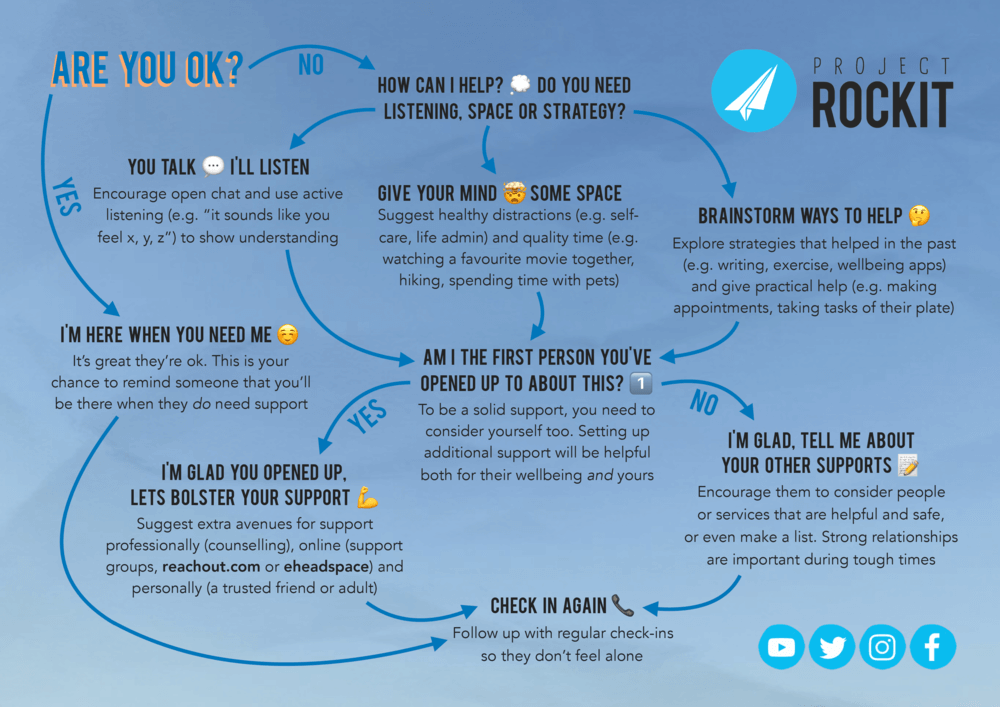For World Mental Health Day, we had asked Project ROCKIT—HundrED 2019 innovation, to share healthy ways to respond when someone says they are not okay. Here are some tips that they suggested!
I’M NOT OK.
These words are so important. When you need help, acknowledgment is often the first step in the right direction. So if we’re going to encourage folks to ask those crucial words “ARE YOU OK?” we need to explore healthy ways to respond to the equally crucial words “NO I’M NOT.”
Here’s what our team at PROJECT ROCKIT came up with:

In our workplace, we got together to brainstorm helpful responses. The above flow captures different steps that have worked for each of us and our loved ones.

You might not know what to say to somebody who is struggling, but you make sure they know you’re right there with them using active listening – show that you’re present, notice and reflect back their feelings, ask open questions and ask for clarification or summarise to validate their experience.
Great summarising phrases can be: “I’m hearing that you’re feeling ___”, or “It sounds like ___ is happening for you.”
And if you ARE ok today, try writing down what helps you in tough situations. Having that list ready to go can be comforting when things do go sour and provide healthy steps forward while you’re not feeling rational 💛💛💛
To learn more about Project ROCKIT, visit their innovation page

